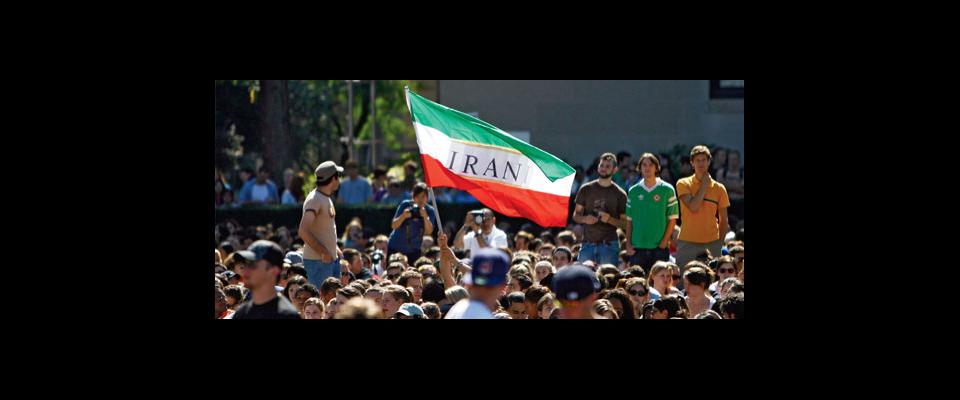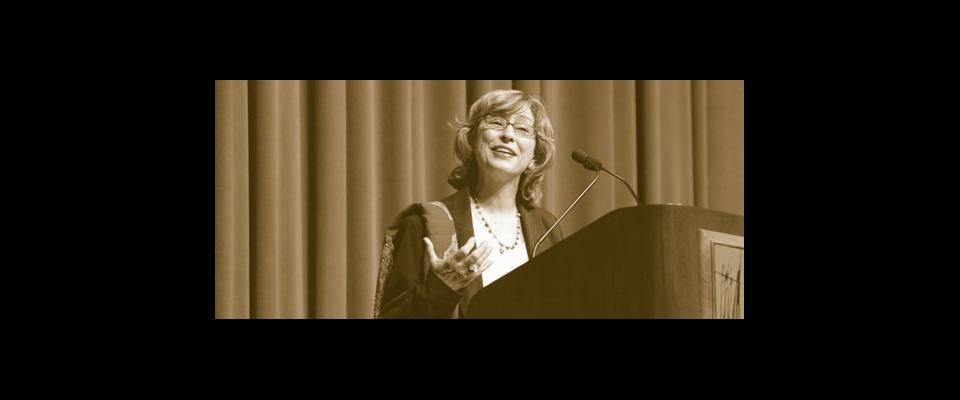Azar Nafisi decries one-sided debate.
When Iranian president Mahmoud Ahmadinejad visited the United States in September, he was widely mocked for his ill-fitting suits and grandiose statements denying the Holocaust and the persecution of women and gays in Iran.There was a dispiriting lack of reasoned, thoughtful debate about his visit, says Iranian author Azar Nafisi, nor could there be: The environment for it did not exist. “One of the things that really bothered me is the amount of attention the media showered on him,” says Nafisi. “Seventy million people live in Iran. Those voices are completely eliminated. It really shows a blatant disregard for the Iranian people, as if they don’t matter.”
By offering no alternate view of life in her homeland, the international media—and Columbia University, which hosted a controversial two-hour speech by the president—are doing nothing to further public understanding of Iran’s complex political and social landscape, says Nafisi. “Since he came to power, over 200 people have been executed. People have been stoned. You are giving the podium to a person who says that women in Iran are free. [Under] the laws of Iran, people are stoned to death for adultery and what you call prostitution. Two women on the witness stand in court are counted as one man. If you don’t have gays in Iran, why are you killing them?”
Better would have been to present the dissident view—as represented by Nobel Peace laureate Iranian lawyer Shirin Ebadi or journalist Akbar Ganji—on the same stage as Ahmadinejad. “I am all for dialogue and I do understand that in a democratic country, we need to understand people we do not agree with,” says Nafisi. “You could have had a civilized and informed exchange, rather than make fun of Mr. Ahmadinejad, because when you belittle the people you invite to speak, you belittle yourself. You want to provide the students with knowledge, to create an atmosphere where debate is possible.
“That is why we turn to Jon Stewart. I immediately wanted to know what he thought.”
From the November December 2007 New Media issue of California.





















